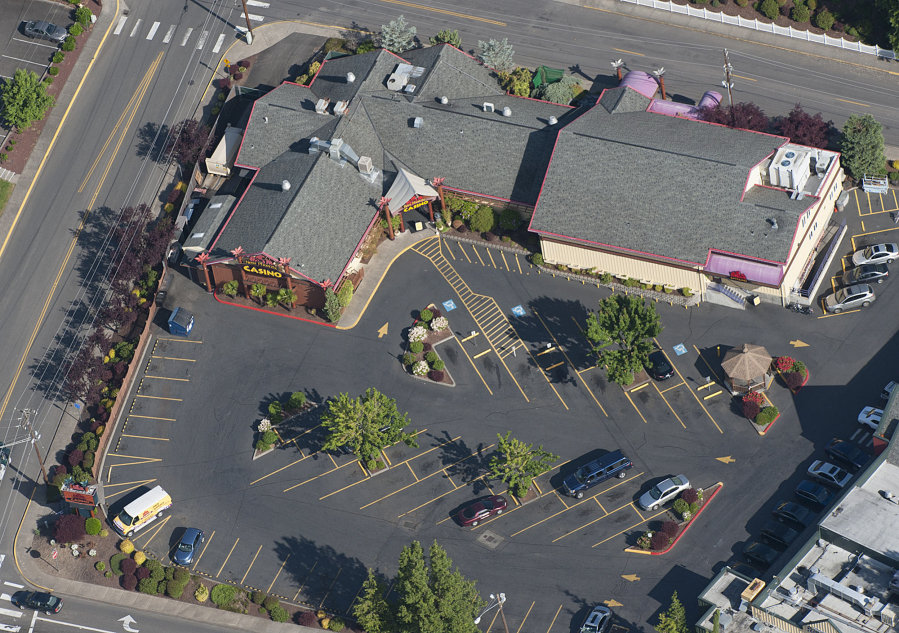Games and business have one big thing in common — competition. And when you’re in the business of gaming, the ante goes even higher.
It comes as no surprise, then, that the Confederated Tribes of Grand Ronde — which operates the Spirit Mountain Casino 60 miles south of Portland — is attempting to take its case against the Cowlitz Tribe and its planned casino to the U.S. Supreme Court.
“The Confederated Tribes of Grand Ronde plans to appeal to the Supreme Court following a U.S. Court of Appeals ruling on Friday, July 29, that will allow the Cowlitz Tribe to keep its 152-acre reservation and continue building a casino 15 miles north of the Portland-Vancouver metropolitan area,” the tribal government announced earlier this month.
This time, though, the Grand Ronde might be going it alone.
Official opposition to the long-planned casino has faded as the Ilani Resort and Casino, scheduled for an April opening, has rapidly risen along Interstate 5 north of Ridgefield and west of La Center.
The city of Vancouver has dropped out of the lawsuit against the tribe, and Clark County may end its involvement as well. That leaves the casino opposition group, Citizens Against Reservation Shopping, and a group of La Center cardrooms that will invariably be affected by the new competitor down the road.
“My clients have not made a decision yet on what the next moves are going to be,” said John Bockmier, a representative for two cardrooms in the case.
As for the citizen group, whose membership includes Columbian Publisher Scott Campbell, board member Paul Christensen said he “can’t comment yet.”
Even if the Supreme Court decides to hear the case, it isn’t likely to offer a ruling on the case before Ilani opens, although an injunction is a remote possibility.
In an announcement earlier this month, the Grand Ronde noted another important aspect of its appeal.
“The Supreme Court, unlike the Court of Appeals, is not required to take all cases. If the Supreme Court does not take the case, the decision of the Court of Appeals stands.”
High stakes
The Grand Ronde have said it would not have challenged the Cowlitz if a reservation had been chosen closer to the tribe’s “traditional homelands” 60 miles north. In other words, farther from the Portland metro than Spirit Mountain.
Since the Ilani casino is expected to draw plenty of Spirit Mountain customers, tribal revenues could fall as much as 41 percent — or $100 million per year, according to the tribe.
“Just like any government that offers programs such as health, education, housing, elder services, we’ve got to look at potential services to either sustain or regain revenue,” said tribal lobbyist Justin Martin. “And we’re currently doing that.”
If this final appeal fails, the Grand Ronde is already looking at opportunities to build on its casino and elsewhere.
“In addition to how we respond to this decision, the tribe has initiated a major renovation of Spirit Mountain Casino, is redeveloping the greyhound track at Wood Village (Ore.) and continues to explore options to build the Grand Ronde economy,” tribal Chairman Reyn Leno said in a statement.
The four smaller cardrooms in La Center will also likely lose customers to the $510 million Ilani casino just a few miles down the road. It’s unclear how much revenue the cardrooms will lose, or what the owners are going to do about the massive new competition.
“We haven’t sat down and had a strategic summit on how this is all going to work,” Bockmier said. “I’m sure that’s going to be coming, but it’s been such a protracted and long experience that that hasn’t happened yet.”
Cowlitz Tribal Chairman Bill Iyall said the cardrooms are pursuing a lawsuit against the tribe’s intergovernmental agreement with La Center.
“We are optimistic this will also be rejected,” he said.
Any revenue drop at the cardrooms would be a problem for the city of La Center. The city’s budget is hugely dependent on cardroom revenue — well over half of all general fund revenue comes from a 10 percent tax on cardroom receipts. The 2016 budget anticipated $2.6 million in cardroom revenue and a general fund spending plan of $3.8 million.
“As far as the cardrooms in La Center go it’s just a big unknown at this point,” Mayor Greg Thornton said. “It’s hard to determine just what the impact is going to be. There’s definitely going to be some decreased revenues as a result of the Cowlitz casino.”
The city, long at odds with the tribe, turned down offers from the Cowlitz Tribe in 2006 and 2008 to pay La Center up to $3 million annually to compensate for lost gambling revenue.
But relations have softened in recent years as the tribe and the city have started working together.
“We have a great partnership with Mayor Greg Thornton and the city of La Center,” Iyall said in a statement. “As part of our intergovernmental agreement with La Center, the tribe is supporting the development of a sewer line to the (interstate) junction that will spur future commercial business growth across the city.”
It’s growth at that junction, Exit 16 — which is getting a $32 million remodel paid for by the tribe– that may help the city recoup any cardroom losses. Services, eateries, hotels or other businesses could spring up in response to the casino and the increased traffic it brings.
“That’s our goal, to extend sewer to the junction, then the city hopes to see commercial development and possibly light industrial,” Thornton said. “That would help the city rebound from impacts to the local cardrooms. That is the goal.”




